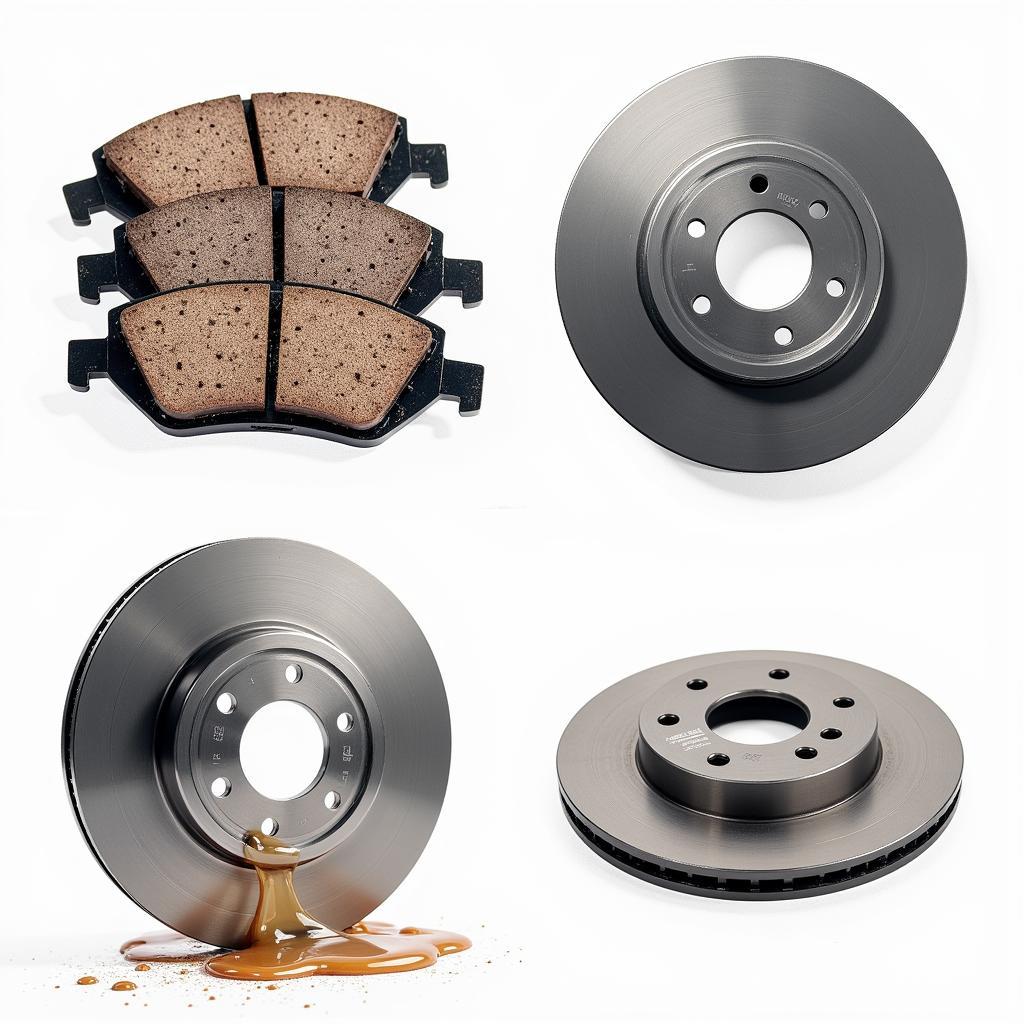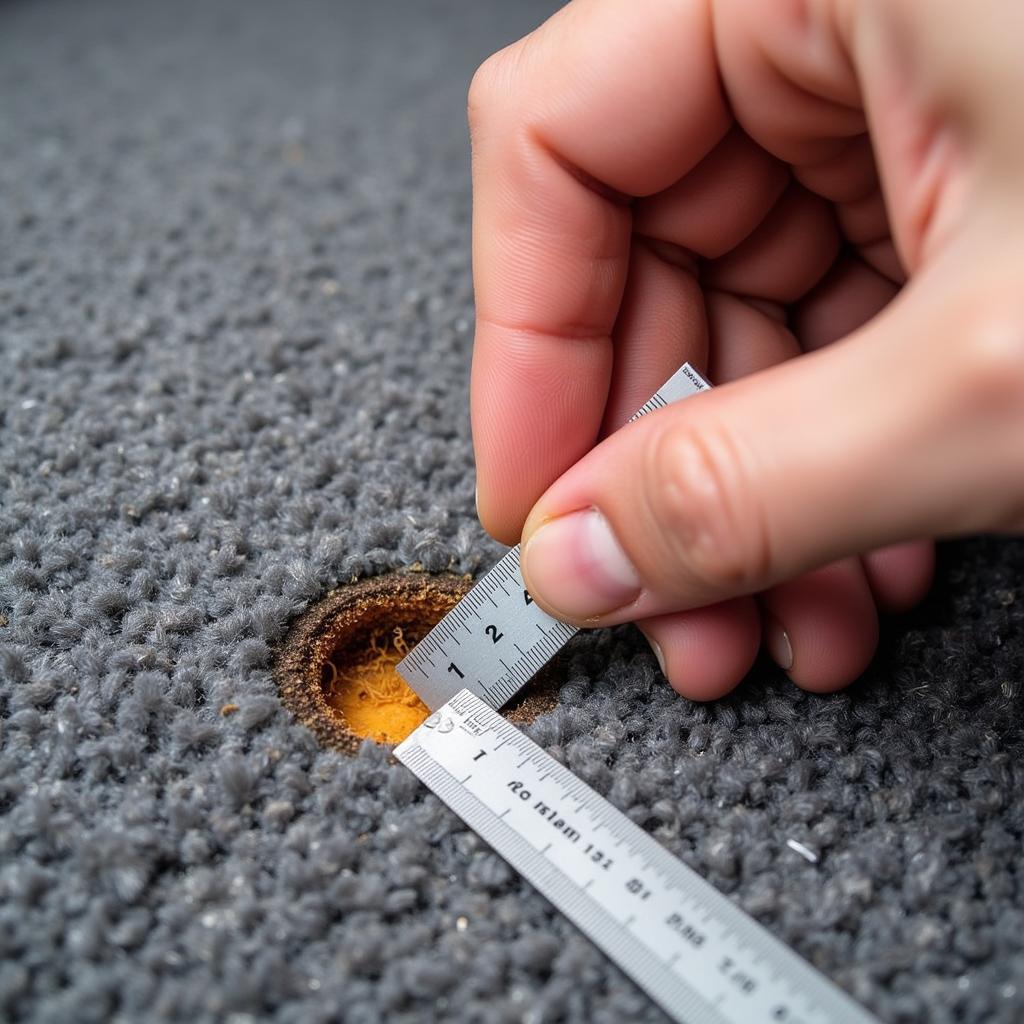A “Machine That Checks Car Problems” can be your best ally in maintaining your vehicle’s health. From simple code readers to advanced diagnostic equipment, understanding these tools empowers you to tackle automotive issues head-on. This comprehensive guide will explore the various types of car problem-checking machines, their functions, and how they can help you, whether you’re a DIY enthusiast, a mechanic, or a car owner seeking knowledge.
Decoding the “Machine That Checks Car Problems”: A Multifaceted Tool
The term “machine that checks car problems” encompasses a broad range of devices. From the basic OBD-II scanner to sophisticated laboratory-grade equipment, each plays a crucial role in diagnosing and resolving automotive issues. Let’s delve into some common examples:
OBD-II Scanners: The Gateway to Your Car’s Brain
OBD-II, or On-Board Diagnostics, is the standardized system that allows external devices to communicate with a car’s computer. An OBD-II scanner is the most common “machine that checks car problems.” It retrieves Diagnostic Trouble Codes (DTCs), which are essentially error messages stored by the car’s computer. These codes pinpoint potential issues within various systems, including the engine, transmission, and emissions control.
- Basic Code Readers: These entry-level scanners display DTCs and their definitions, providing a starting point for troubleshooting.
- Enhanced Scan Tools: These offer more advanced features, such as live data streaming, allowing you to monitor sensor readings in real-time. This is invaluable for diagnosing intermittent problems.
- Professional Diagnostic Scanners: Used by mechanics and technicians, these powerful tools provide comprehensive diagnostic capabilities, including bi-directional control, which allows you to activate components like fuel injectors or solenoids for testing.
Beyond the OBD-II: Specialized Diagnostic Equipment
While the OBD-II scanner is a powerful tool, some problems require more specialized equipment. This “machine that checks car problems” can take various forms:
- Oscilloscope: Used to visualize electrical signals, an oscilloscope can diagnose complex issues related to sensors, actuators, and wiring harnesses.
- Multimeter: This versatile tool measures voltage, current, and resistance, allowing technicians to pinpoint electrical faults.
- Pressure Gauges: Used to measure fuel pressure, oil pressure, and other critical parameters, these gauges help diagnose mechanical problems.
- Leak Detectors: These specialized tools can identify leaks in various systems, such as the cooling system, exhaust system, and evaporative emissions system.
Choosing the Right Machine That Checks Car Problems
The best “machine that checks car problems” depends on your needs and technical expertise. If you’re a car owner looking for a basic understanding of your car’s health, a simple code reader might suffice. However, if you’re a professional mechanic, a professional diagnostic scanner is essential.
“Investing in the right diagnostic tool can save you time and money in the long run. It’s like having a doctor for your car, allowing you to catch problems early and prevent them from becoming major headaches,” says John Miller, a seasoned automotive engineer with over 20 years of experience.
Maximizing Your Diagnostic Power: Tips and Tricks
Regardless of the “machine that checks car problems” you use, here are some valuable tips for effective diagnostics:
- Read the Codes Carefully: Don’t just rely on the code definition; research the code thoroughly to understand its potential causes.
- Consider the Context: A single DTC can have multiple causes. Consider the car’s symptoms, history, and other relevant information to narrow down the possibilities.
- Use Live Data: If your scanner supports live data, use it to monitor sensor readings in real-time. This can help identify intermittent problems that might not trigger a DTC.
- Consult Resources: Utilize online forums, repair manuals, and other resources to gain a deeper understanding of your car’s systems and potential problems.
Conclusion: Empowering Car Owners and Professionals with the Right Tools
The “machine that checks car problems” is an invaluable tool for anyone involved in automotive maintenance and repair. From simple code readers to advanced diagnostic equipment, understanding these tools empowers car owners and professionals to address automotive issues efficiently. By choosing the right machine and utilizing effective diagnostic techniques, you can keep your car running smoothly and avoid costly repairs.
For personalized assistance with your car’s needs, connect with the experts at AutoTipPro. Call us at +1 (641) 206-8880 or visit our office at 500 N St Mary’s St, San Antonio, TX 78205, United States. We’re here to help you navigate the complexities of automotive diagnostics and keep your vehicle in top condition.






Leave a Reply